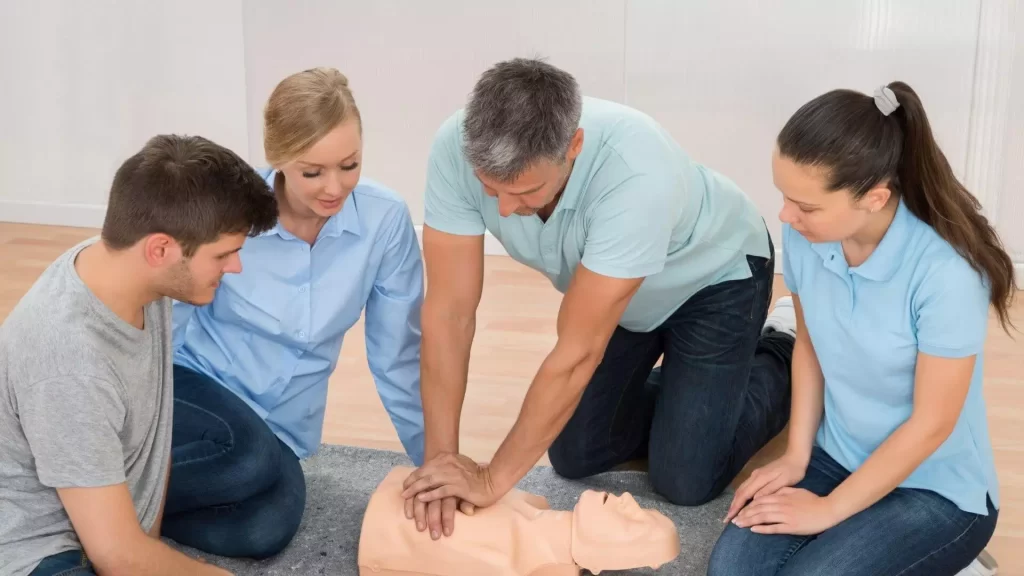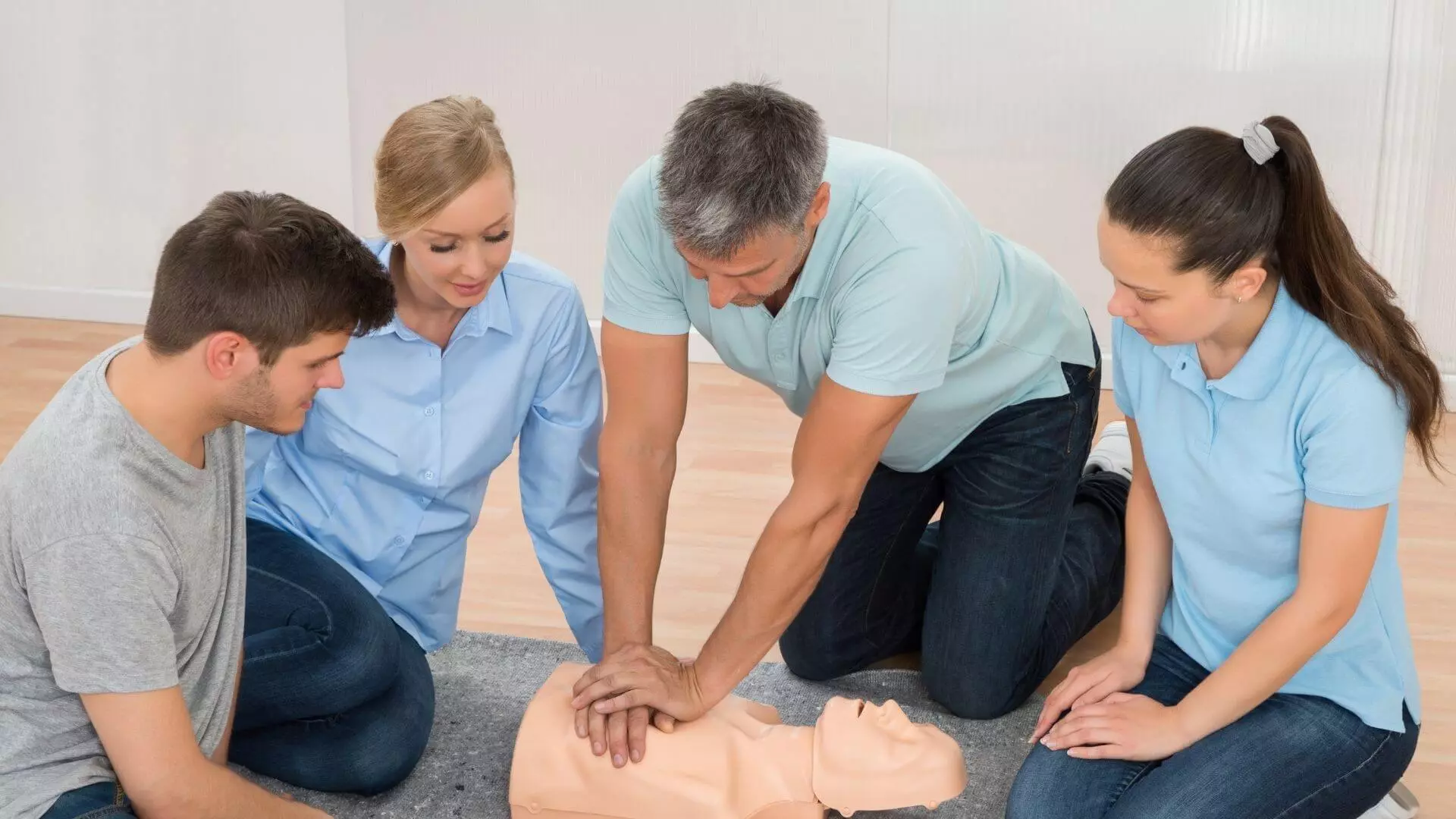Are you wondering how long your CPR certification lasts? Well, let’s dive in and find out! Knowing the validity of your certification is crucial because it ensures you’re prepared to save lives when it matters most. In this blog post, we’ll unravel the duration of different types of certifications and why timely renewal is essential. Let’s get started!

Content
Duration & Renewal Periods
When it comes to CPR certification, understanding how long each type of certification lasts is crucial. Let’s explore the specific timeframes for different certifications:
Basic Life Support (BLS) Certification
- BLS certification typically remains valid for two years before renewal is required.
- This means you’ll need to refresh your training and recertify every couple of years to ensure you maintain proficiency in life-saving techniques.
Heartsaver First Aid/CPR/AED Certification
- Heartsaver certification, aimed at non-medical professionals, usually has a validity period of two years.
- However, keep in mind that renewal periods may vary based on organizational policies or specific requirements set by training providers.
Advanced Cardiac Life Support (ACLS) Certification
- ACLS certification is often renewable every two years.
- However, it’s important to note that certain institutions might require more frequent recertification due to evolving guidelines and advancements in emergency medical practices.
Understanding the duration and renewal periods of each type of CPR certification allows you to stay prepared and up-to-date with the latest protocols. By renewing your certification within the specified timeframe, you ensure that your skills remain sharp when faced with critical situations requiring immediate action.
To simplify this process, we recommend checking out cprcertificationnow.com. They offer comprehensive information on various types of CPR certifications, including their specific durations and renewal requirements. Visiting their website will provide you with valuable insights into maintaining an active certification status while staying informed about any changes or updates in this field.
Importance of Recertification
Keeping your CPR certification up-to-date through regular recertification is vital for maintaining proficiency in life-saving skills. Let’s explore why recertification is essential and the potential consequences of an expired certification in a real-life emergency situation.
Maintaining Proficiency
Regular recertification ensures that you stay proficient in performing CPR techniques effectively. Skills can fade over time, so refreshing your knowledge and practicing hands-on skills helps you retain confidence and competence when it matters most.
Updated Guidelines & Protocols
Guidelines and protocols for CPR are constantly evolving based on research and advancements in medical science. Through recertification, you learn about these updates, ensuring that you’re aware of the latest best practices to provide optimal care during emergencies.
Consequences of Expired Certification
An expired CPR certification can have serious ramifications. In a real-life emergency scenario, not having current knowledge or training may lead to hesitation or improper technique application, potentially compromising the victim’s chances of survival.
Additionally, certain organizations require valid certifications as a prerequisite for employment or volunteer work involving lifesaving responsibilities. Without an active certification, opportunities to make a difference may be limited.
Recertifying within the recommended timeframe demonstrates your commitment to staying updated with life-saving techniques while instilling confidence in yourself and others around you during emergencies.
Finding CPR Certification Courses
When it comes to obtaining your CPR certification, finding reputable organizations or training centers is crucial. Let’s explore how you can locate reliable courses to ensure you receive proper training.
Seeking Reputable Organizations
Start by researching well-known and trusted organizations that offer CPR certification courses. Look for certifications recognized in your country or region, such as the American Heart Association (AHA), Red Cross, or National Safety Council. These organizations have established credibility and adhere to high standards of training.
Online Resources & Platforms
In today’s digital age, there are numerous online resources and platforms that provide both in-person and virtual CPR training options. Here are a few suggestions:
- Organization Websites: Visit the websites of recognized organizations like AHA or Red Cross to find information about their certified instructors, course offerings, and locations.
- Online Course Providers: Explore platforms such as ProTrainings, eCPRcertification.com, or HealthStream offering online CPR certification courses with interactive modules and assessments.
- Local Community Centers: Check with local community centers, hospitals, fire departments, or schools that may offer CPR classes taught by certified instructors.
Remember to verify if the chosen organization follows the latest guidelines for CPR techniques and offers comprehensive hands-on practice sessions along with theoretical knowledge.
By selecting reputable organizations or utilizing trustworthy online resources/platforms for your CPR certification needs, you can ensure quality education from experienced instructors while accommodating your learning preferences.
Conclusion
Knowing how long your CPR certification lasts is crucial for staying prepared to save lives. Whether it’s BLS, Heartsaver, or ACLS certification, timely renewal ensures you maintain proficiency in life-saving skills. Remember, recertification is key to keeping up with evolving guidelines and protocols. Stay certified and be a confident responder when emergencies strike!
FAQs
u003cstrongu003eIs the duration of CPR certification the same for all types of certifications?u003c/strongu003e
No, the duration varies depending on the type of certification you obtain.
u003cstrongu003eCan I use my CPR certification indefinitely without renewal?u003c/strongu003e
No, CPR certifications have expiration dates to ensure individuals stay updated with current techniques and guidelines.
u003cstrongu003eDo different organizations have different validity periods for CPR certifications?u003c/strongu003e
Yes, while there are general guidelines, specific organizations may have their own policies regarding how long a certification remains valid.
u003cstrongu003eWhat happens if my certification expires before I renew it? Can I still perform CPR if needed?u003c/strongu003e
It is strongly recommended to maintain an active and up-to-date certification. An expired certification may limit your ability to perform certain duties or responsibilities involving life-saving skills.
u003cstrongu003eAre there any exceptions where recertification is not necessary for CPR training?u003c/strongu003e
Generally, regular recertification is required; however, some organizations may offer refresher courses that allow individuals with expired certifications to update their knowledge and skills without going through full retraining.

Alissa Edwards a health blogger, but her words have the power to change your life. She is an avid reader and she loves nothing more than curling up with a good book. She always strives for perfection in everything she does, so it’s no surprise that she plans on becoming the next JK Rowling one day!









